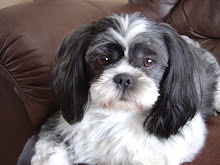
Colic is one of the most common horse conditions for which you will need to call your Veterinarian. Colic is not a disease. It is a clinical sign of many possible diseases. Increasing your knowledge of this common condition of horses could save your horse’s life.
Colic means literally a pain in the abdomen. When a horse "colics," this means that the horse is acting painful and it appears that the pain is coming from the abdomen.
Horse colic can vary greatly in severity. Some colics will go away with just taking your horse for a walk, but other forms of colic will require surgery and can be life threatening. So if you think your horse has colic you should contact your Veterinarian immediately.
There are many possible causes of colic. One possible cause of colic could be from changing its diet. The diet could be too high in grain or maybe there is moldy hay in the feed. Another possible cause is when a segment of the horse's intestine twists in the abdomen. This happens quite frequently in horses. Generally your Veterinarian can diagnose this by ultrasound, palpation, or by use of a stethoscope. To cure this type of colic, surgery is often required. This means you have to take your horse to the Veterinary hospital. Colic surgery in horses is very expensive costing $2,000 at a minimum. In addition the hospitalization is rather extensive and expensive too.
Some common treatments for mild colics could include products that relieve the pain like analgesics such as Banamine or Aspirin. Also, mineral oil is used sometimes if it is thought that extra lubrication in the intestines would help the pain pass. Sometimes in severe cases, intestines can rupture which usually leads to death. But, with proper feeding and care you can prevent most cases of colic.
Usually when calling your Veterinarian about your horse having colic, they will advise you NOT to let your horse try to lie down and roll over. If they are in pain, many horses will try and lay down and roll around on the ground trying to relieve the pain. It is important to prevent this, as a horse can do even more damage to themselves rolling around while in this condition.
A secondary problem often overlooked when a horse has colic is that lameness could develop. This is a disease of the feet which is also a very common problem of horses.
If you think your horse has colic you should contact your Veterinarian immediately, even if it's late at night. When your horse has colic, minutes and hours count toward finding a resolution to the problem.
Another important thing to be aware of, is that some horses are more prone to colic than others. This is a question you should ask a horse owner if you are thinking about buying their horse.
By becoming aware of the common disease conditions in horses you can catch them earlier and provide relief earlier. If you have more questions on colic, contact your Veterinarian.
Until next time,
Teia

No comments:
Post a Comment